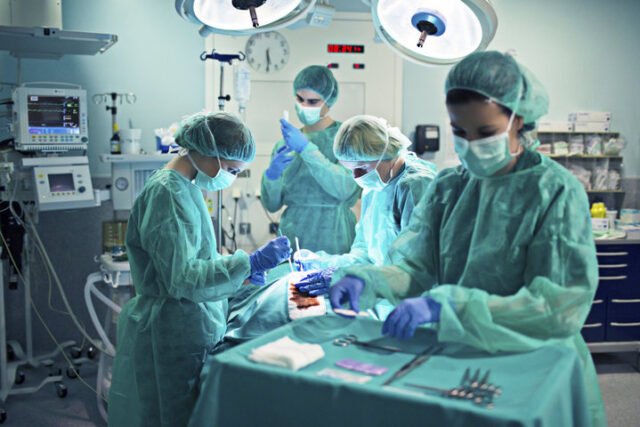Does the removal of vestigial organs impact human health? The answer to this question isn’t as simple as you might think! See what modern medical experts have to say in response to this and related questions.
Vestigial organs are often defined as a rudimentary body part or a structure that once was useful in a past life, but is no longer needed in today’s society. As humans continue to evolve and adapt to their surroundings, many things that were once used by our ancestors are no longer necessary today. The notion of evolution has been widely accepted as fact by most biologists since Darwin’s publication. But just how much has humanity changed over time? How have we adapted to our environment? And why do we still carry around useless remnants from our ancestral heritage?
What are vestigial organs? How do they impact humans?
A vestigial organ is one that has lost all or most of its original function in a species. The human body is an incredibly complex system that needs to be in good working order for optimum performance. We have certain organs and parts of our body that aren’t always necessary for survival, but since they were there when we were born, they’re still around. These are vestigial organs. While other animals sometimes have these as well, it is more common in humans. Why did they evolve? And how do some of them affect us today?
Examples of vestigial organs in our human bodies
A good example is our wisdom teeth, which humans don’t really need. Also, our appendixes are another good example. The last bone in our vertebral column, “coccyx” is another example of these organs, and it is believed that the tail used to originate from this point perhaps in early humans. These are a few of the vestigial organs. Even though they seem to serve no purpose, it doesn’t mean they’re entirely useless;
Our appendix can be problematic sometimes
On rare occasions, your appendix can rupture and cause a serious infection. It’s actually a lot more common than you might think. This happens when bacteria gets into your intestines, causing an appendicitis attack. A ruptured appendix causes peritonitis and sepsis — meaning bacterial toxins enter your bloodstream.
When left untreated, these infections lead to septic shock — low blood pressure from shock — which affects cardiovascular functions and can be fatal if not treated promptly with antibiotics. In all the best hospitals in Pakistan, the procedure is performed in the best way.
Removal of Appendices in Infants
Appendicitis is one of the most common diseases that lead to hospital visits. According to a study, it may happen by aberrant migration of epithelial cells during embryonic development. The symptoms include abdominal pain and loss of appetite. Most people recover without any treatment but for those with an appendix perforation, surgery is necessary to remove it.
About 2 million Americans get appendicitis every year. 12-15% of them require an appendectomy for acute appendicitis. About 6-8% develop chronic appendicitis requiring repeated surgeries to remove recurrent abscesses from their appendix or other tissues within their abdomen.
Removal of Epiglottis in Children
The epiglottis is a leaf-shaped flap of cartilage that helps prevent food and liquids from entering your windpipe while you’re swallowing. Sometimes, due to conditions like allergies or viral infections, children develop swelling around their epiglottis. This can cause it to close off—causing them to have trouble breathing and difficulty swallowing solid foods.
If these problems continue for a long time, patients may need surgery to remove their epiglottis. Some say it’s better for infants and children under seven years old to undergo surgery before they start school so they don’t face taunting because of not being able to swallow properly.
Removal of Uterus and Ovaries in Women
Uterus and ovaries removal (Hysterectomy) is a surgical procedure that works in various cases to treat women with irregular or heavy menstrual periods, cancer of uterus or ovaries, endometriosis, or fibroids. It also prevents fertility and any pregnancy due to defective uterine lining. Removing both ovaries at a time is an oophorectomy. Unlike men, women can still have sexual intercourse after hysterectomy because they still have their vagina and fallopian tubes.
Also having an oophorectomy during menstruation will not cause any bleeding during menstruation. The most common types of Hysterectomies include Total Abdominal Hysterectomy (TAH), Vaginal Hysterectomy (VH), Laparoscopic-Assisted Vaginal Hysterectomy, Laparoscopic-Assisted TAH, Robotic-Assisted Vaginal Hysterectomy, Robotic-Assisted TAH, etc. All of these procedures are well-practiced in every hospital in Pakistan.
Removal of the Gallbladder in Adults
Gallbladder disease is a serious condition that can end up affecting one’s quality of life. The most common symptoms include pain in your abdomen, constipation, diarrhea, heartburn, and bloating. About 15% to 20% of adults have gallstones but only about 3% develop symptoms each year. Surgery is a necessity in order to resolve any kind of gallbladder issues as it prevents further progression and damage from occurring.
Surgeons remove over 100,000 gallbladders per year and an increasing number of them do not use anesthesia or take patients back to their hospital room until hours after surgery. There are a couple of reasons for removing gallbladders instead of attempting conservative treatment – if patients don’t respond to lifestyle changes within six months or if they present with severe side effects due to their treatment, such as pancreatitis or liver failure.
Conclusion
Hence, we figured out that vestigial organs are the ones that were useful once but not anymore. Their removal doesn’t have a drastic impact on human health so do their presence unless they don’t start functioning badly. All of these procedures for the removal of these organs are done in all the best hospitals in Pakistan.
Diseases often occur without warning, causing worry and problems. Our medical tourism company understands this and offers simple solutions to ease your health. Contact them through their website or by phone for round-the-clock assistance.

Bolchaal is a platform of passionate writers who want to aspire others through the amazing ideas they have relating to our beloved homeland “Pakistan”.









